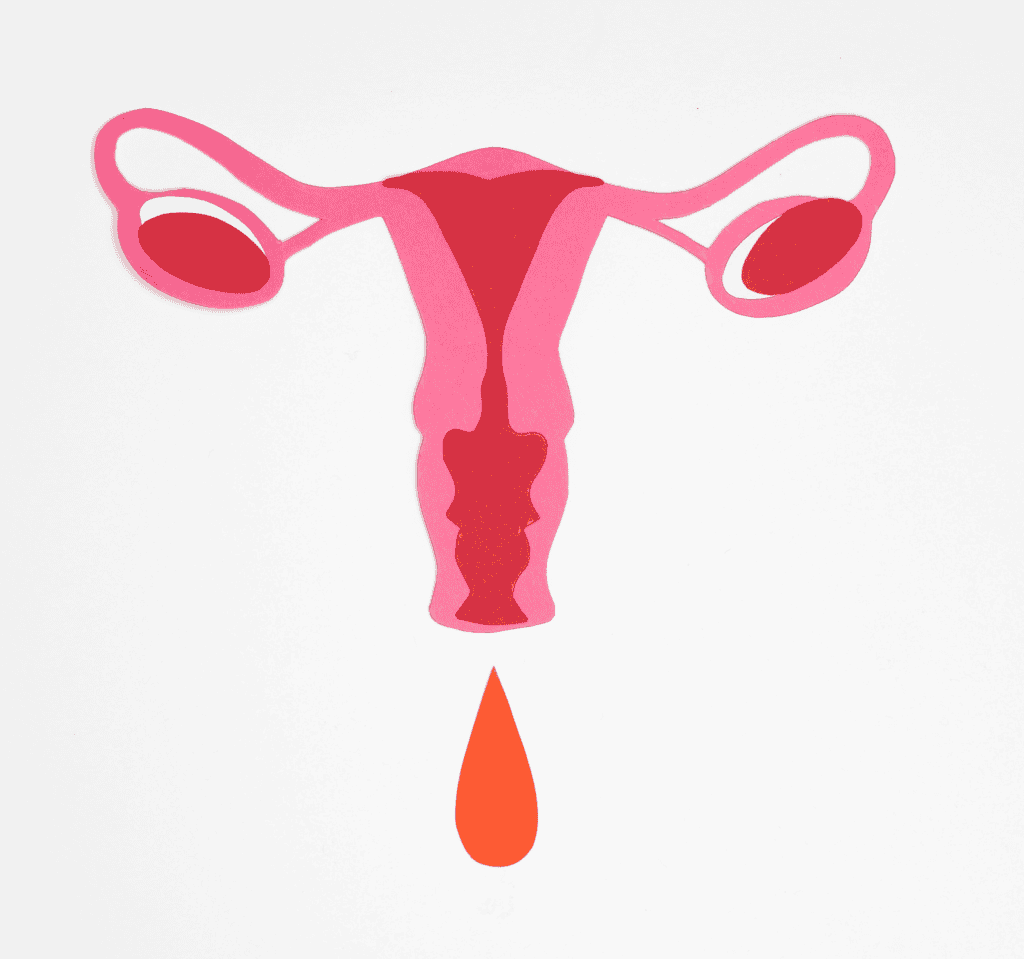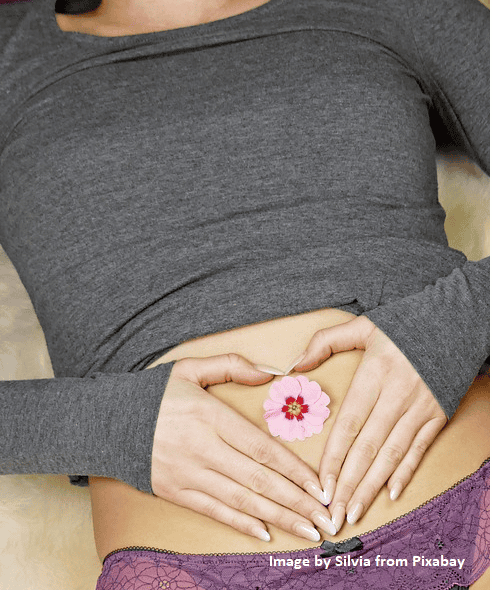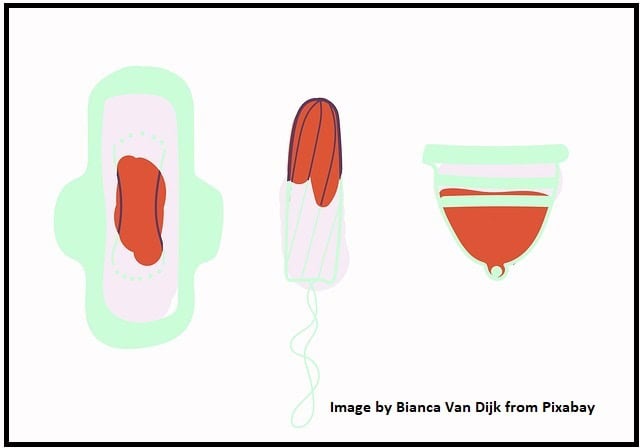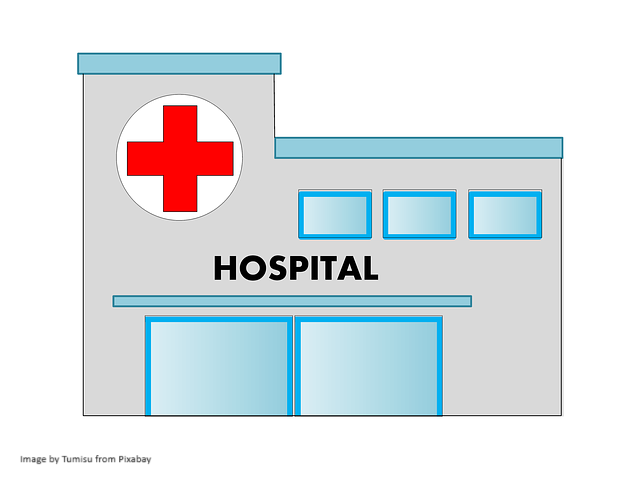Меոѕtruаtion means having your periods. During your periods, you will be bleeding from your uterus (womb) and the blood flows out from the vagina.
A woman will start getting their periods when they enter through puberty. They will continue to get their periods until they reach “menopause.” This is the time when periods naturally stop at average of 50 to 52 years old.

Basics
Periods occur due to certain hormonal effects on the inner lining of the uterus (womb). These elevated hormones are produced by the ovaries in a cyclical manner and occurs at the start of puberty. This is also the time when it is physically possible to get pregnant. During each cycle:
• The inner lining of the uterus starts to thicken due to the effects of oestrogen. This thickened lining is intended to support a pregnancy.
• One of the ovaries will start to produce an egg and will be release once it matured. This is termed as ovulation.
• Pregnancy occurs when the release egg is fertilized by the sperm. If no pregnancy occurs, then the thickened lining will be shed as bleeding and termed as a period (menstruation).
In many women, this cycle repeats itself about once a month. Some women may get an irregular menstrual cycle.
What is abnormal menstruation?
• You have heavy menses when you:
Soak through a pad or tampon every 1 or 2 hours
Need to change your pad or tampon several times during the night
Pass clots or stains your clothes, undergarments or pajamas (term as flooding)
Excessive flow will lead to anaemia – anaemia is a condition when your body doesn’t have enough red blood cells to carry oxygen to your tissues, making you feel weak, tired, headaches, having trouble breathing when you exercise or doing routine work, palpitation (feeling your heartbeat too fast) when you exercise.
• Have periods that last for more than 8 days
• Bleed in between periods
• Get your period more often such as 2 to 3 episodes in a month.
• Have moderate to severe pain and cramps in your lower belly before or while you are bleeding
• Suddenly bleeding again after you have not had periods for at least a year, and when you think that you are already menopausal.
There are many causes of abnormal menstrual bleeding. For more details, click HERE and HERE to read more.


Frequency of a period
At the beginning of puberty when a person first starts getting their period, the cycle may not be every month. Sometimes, it may even skip a month or two. This is still normal or may come more frequently. Fortunately, over time, most menstrual cycles tend to be more regular. Most women get a period about once a month. A normal cycle can range from 24 days to 38 days. The cycle length is counted from the first day of your last period to the first day of your next period. During each period, the flow usually lasts from a few days to about a week.
It is a good practise to keep track of your menstrual cycles and monitor the duration and amount of flow. You should then consult your doctor when there is a drastic change
Associated symptoms with menstruation
During menstruation, some women may have other symptoms, and this can occur either before or during the bleeding days. These symptoms are related to hormonal changes. If this happens before the start of menstruation, it is term as premenstrual syndrome (PMS). You can click on the link to read more.
What can affect my period?
It’s normal for your usual cycle to come a few days earlier or a few days late. Several factors may affect your menstrual cycles – either making it less often or not at all. These include:
• pregnancy
• breastfeeding
• heavy exercise especially the extreme form, feeling very stressed, or big changes in body weight
• certain health or endocrine problems, such “polycystic ovary syndrome (PCOS)” or thyroid disorders.
• certain medicines, including certain birth control pills
• peri-menopause (some women may enter menopause at a much earlier age)
If you do not have periods for extended period or the cycles are very irregular, your doctor may order some blood tests to find the cause for it.


What are the different types of menstrual products?
There are many different products you can use during your period. They include:
• Pads – this is the most popular and the pad is placed on the inner lining of the underwear to absorb the blood. Different sizes and thickness are available. Most pads sold are the disposable type.
• Tampons – this type is to be inserted into vaginal and are made of super absorbent material. During period, the tampon will expand slightly as it absorbs the menstrual blood. Some tampon comes with disposable applicators to help easy insertion into vagina. The tampons have a string that hangs outside of the vagina to make it easy to remove. It should be changed at least every 4 to 8 hours. Leaving a tampon in for too long is not advisable due to risk of infection.
• Menstrual cups – These are small, soft and flexible cups that is inserted into the vagina to collect the menstrual blood and prevent it from falling out. It comes indifferent brands and sizes. They can be worn for up to 12 hours. It can be washed and reused.
• Period underwear and swimwear – These are specially made underwear and swimwear that can be worn during menstruation. It can absorb blood. It can be washed and reused.
The choices depend on your own preference, your lifestyle and the type of activities that you may want to do during the menstruation. Some women may prefer to use tampons or menstrual cups during hiking or swimming instead of pads. Cost is also an issue for considerations. In the long term, reusable may be cheaper and more eco-friendly
Restriction during period
There is usually no restriction and most of the time a woman can do all her normal activities unless it is too heavy or associated with severe pain. In such instances, she should consult her doctor to find out why and get treated. There are no dietary restriction as well.
Steps to relieve period related discomfort
• Take pain relief medications such as ibuprofen, mefenamic acid, or naproxen. These are called Nonsteroidal anti-inflammatory drugs (NSAIDs), unless you have known allergies.
• Apply heat pad or hot water bottle on your lower belly – This can help relieve ϲrаmрѕ. Please be careful to avoid causing burn to your skin.
• For some women, regular exercise can help reduce menstrual cramps and pain. Therefore, it may be worthwhile to try and see if this helps you.
You should consult your doctor if you have the following:
• you still have not had your period by 15 years of age.
• your menstrual cycles are only 3 cycles or less in a year.
• the menstrual flow is progressively heavier with passage of large clots and flooding.
• the period pain is getting more severe.
• Heavy bleeding lasting more than a week.
Disclaimer
This is for informational purposes only and is not intended to be a substitute for professional medical advice, diagnosis, or treatment. It is important for readers to seek proper medical advice when necessary.

To subscribe to the free newsletter to get the latest updates on Women’s Health, click HERE.
